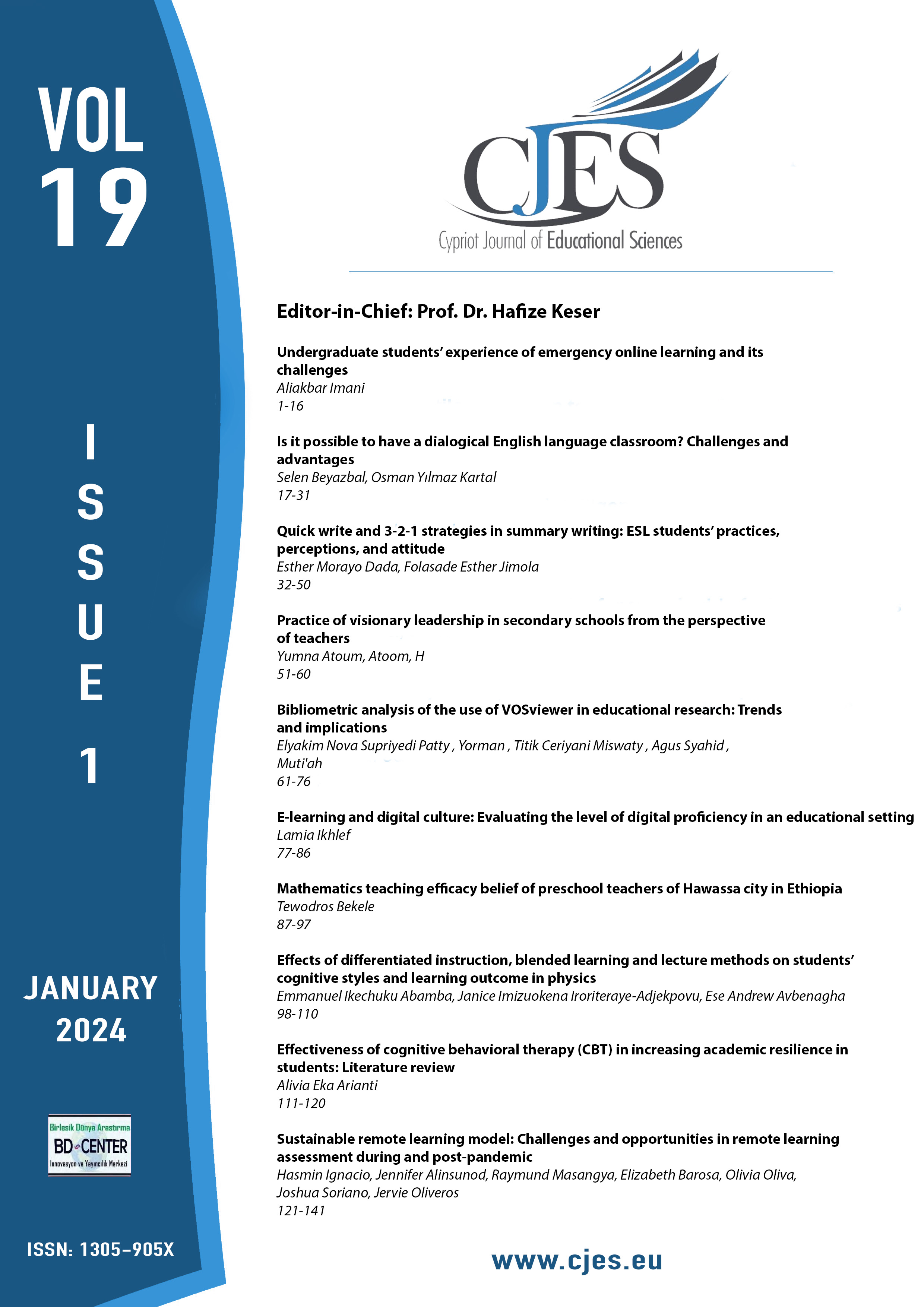Effects of differentiated instruction, blended learning and lecture methods on students’ cognitive styles and learning outcome in physics
Main Article Content
Abstract
The effects of differentiated instruction, blended learning, and lecture methods on students' learning outcomes and cognitive style have been researched in past research. However, there remains a gap when it comes to its application in physics. The study investigated the effects of differentiated instruction, blended learning, and lecture methods on students’ cognitive styles and learning outcomes in physics. The research adopted a quasi-experimental control group, pretest, and posttest planned variation design. Four research questions and six hypotheses were formulated and tested. A total of one hundred and forty-three (143) from three local government schools in Delta north senatorial participated. The study employed a Physics achievement test (PAT) and cognitive style inventory scale as instruments. The result indicated a significant effect and difference between the three methods. It was recommended among others that faculties of education should include differentiated instruction and blended learning as a method of teaching Physics to enhance learning outcomes in Physics classrooms.
Keywords: Blended learning; cognitive style; differentiated instruction; lecture method; physics.
Downloads
Article Details

This work is licensed under a Creative Commons Attribution 4.0 International License.
Cypriot Journal of Educational Sciences is an Open Access Journal. The copyright holder is the author/s. Licensee Birlesik Dunya Yenilik Arastirma ve Yayincilik Merkezi, North Nicosia, Cyprus. All articles can be downloaded free of charge. Articles published in the Journal are Open-Access articles distributed under a CC-BY license [Attribution 4.0 International (CC BY 4.0)].
Birlesik Dunya Yenilik Arastirma ve Yayincilik Merkezi (BD-Center)is a gold open-access publisher. At the point of publication, all articles from our portfolio of journals are immediately and permanently accessible online free of charge. BD-Center articles are published under the CC-BY license [Attribution 4.0 International (CC BY 4.0)], which permits unrestricted use, distribution, and reproduction in any medium, provided the original authors and the source are credited.

